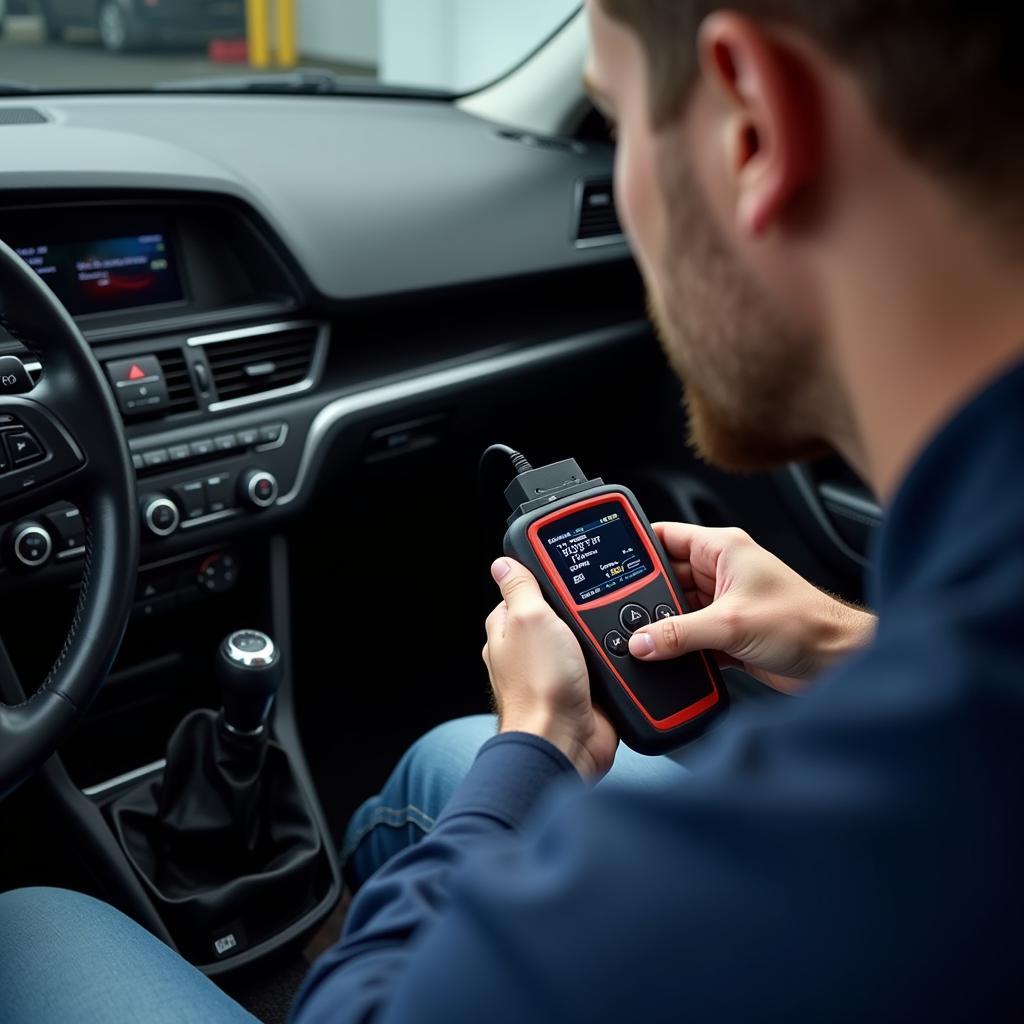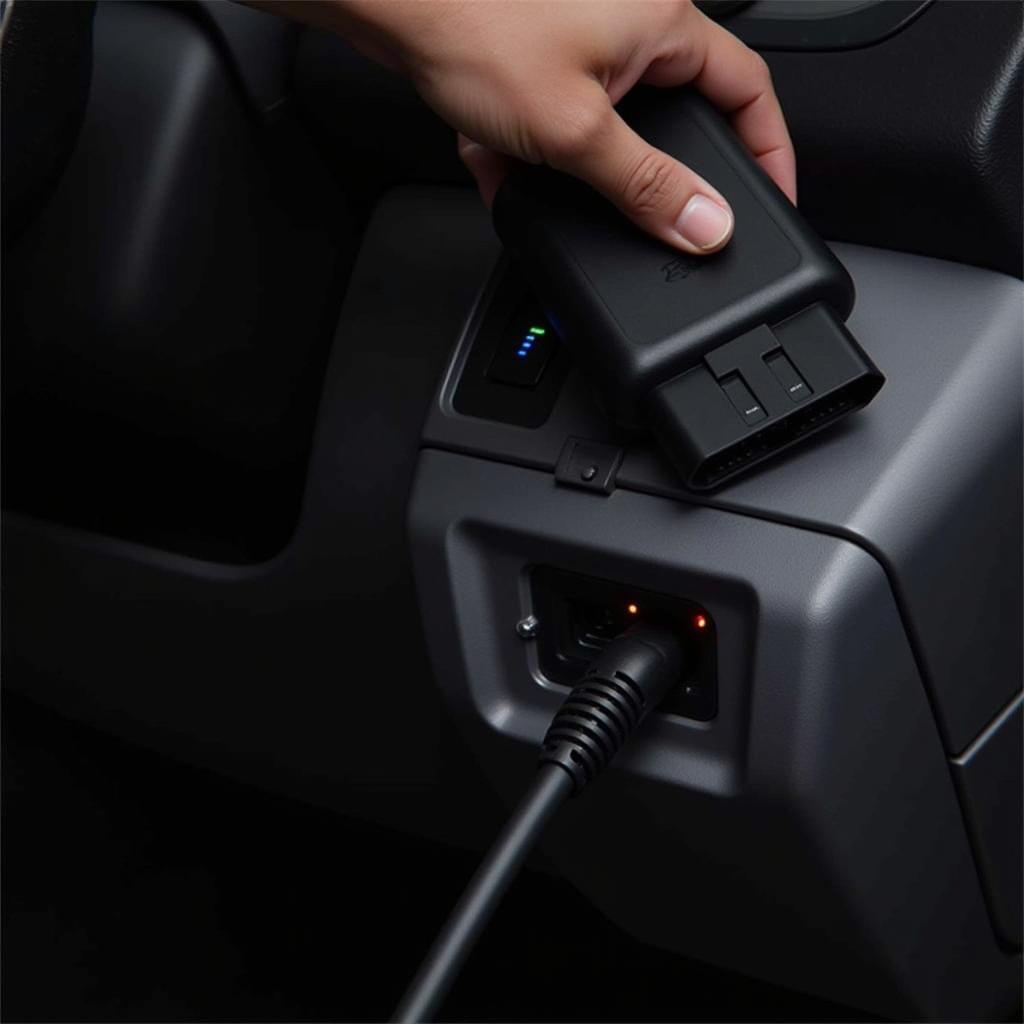Car diagnostics have become a ubiquitous part of modern car maintenance, often leaving car owners wondering, Is Car Diagnostics A Rip Off? The seemingly simple process of plugging in a scanner can sometimes result in hefty bills, leading to skepticism and distrust. This article delves into the world of car diagnostics, exploring its true value, potential pitfalls, and how to ensure you’re getting a fair deal. You might be interested in a good car diagnostic tool.
Understanding the Value of Car Diagnostics
Modern vehicles are complex machines with intricate electronic systems. A car diagnostic scan uses a specialized tool, often a handheld car diagnostic computer, to communicate with these systems, retrieving diagnostic trouble codes (DTCs) that indicate potential issues. These codes act as a starting point for troubleshooting, offering valuable insights into the inner workings of your car. Think of it like a doctor using a stethoscope to listen to your heart; the stethoscope doesn’t solve the problem, but it provides crucial information for diagnosis.
Car diagnostics can save you money in the long run by preventing small problems from escalating into costly repairs. Early detection of a failing oxygen sensor, for example, can prevent damage to the catalytic converter, a significantly more expensive component.
 Mechanic Connecting Diagnostic Tool to Car
Mechanic Connecting Diagnostic Tool to Car
Why the Perception of a Rip-Off?
Several factors contribute to the perception that car diagnostics are a rip-off. One common issue is the misinterpretation of DTCs. Codes don’t always pinpoint the exact problem; they often indicate a range of possibilities requiring further investigation. An unscrupulous mechanic might exploit this ambiguity, recommending unnecessary repairs based on a code alone without proper diagnosis. Another factor is the cost of diagnostic scans themselves. Some shops charge exorbitant fees, further fueling the suspicion of a rip-off.
Another point of contention is the increasing accessibility of DIY diagnostic tools, such as a bluetooth obd2 obdii car auto diagnostic scanner. While these tools empower car owners to read codes themselves, they lack the comprehensive functionality and expert interpretation of professional-grade equipment. This can lead to misdiagnosis and potentially ineffective repairs.
Avoiding Car Diagnostic Rip-Offs
So, how do you ensure you’re not being taken advantage of? Knowledge is your best defense. Understanding the basics of car diagnostics and asking the right questions can help you navigate the process with confidence.
- Choose a reputable mechanic: Look for certified technicians with a proven track record. Word-of-mouth referrals and online reviews can provide valuable insights.
- Ask for a detailed explanation: Don’t simply accept a list of codes. Ask the mechanic to explain what each code means and how it relates to your car’s symptoms.
- Get a second opinion: If you’re unsure about a diagnosis, don’t hesitate to seek a second opinion from another mechanic.
- Educate yourself: Learn the basics of car diagnostics. Understanding how the system works can help you identify potential red flags.
- Consider DIY tools carefully: While affordable, DIY diagnostic tools require a degree of automotive knowledge. Be prepared to invest time in learning how to use and interpret the results effectively. For some, a bluetooth car diagnostics android tool may be suitable.
 Car Diagnostic Report on Computer Screen
Car Diagnostic Report on Computer Screen
“Transparency is key,” says John Smith, ASE Certified Master Technician. “A good mechanic will explain the diagnostic process in detail, answering all your questions and providing clear explanations of any recommended repairs.”
Is it Worth Paying for Professional Car Diagnostics?
While DIY diagnostic tools can be helpful for simple tasks, professional car diagnostics offer several advantages. Professional mechanics have access to advanced equipment, extensive experience, and up-to-date knowledge of automotive systems. They can pinpoint issues with greater accuracy and efficiency, ultimately saving you time and money in the long run.
“Think of professional car diagnostics as an investment in preventative maintenance,” says Jane Doe, automotive engineer. “Identifying and addressing small problems early can prevent major headaches down the road.”
 Close-up of OBD-II port with connected diagnostic tool
Close-up of OBD-II port with connected diagnostic tool
Conclusion
Is car diagnostics a rip off? Not necessarily. Like any service, it can be susceptible to unscrupulous practices. However, by choosing a reputable mechanic, asking the right questions, and educating yourself, you can ensure you receive honest and valuable service. Car diagnostics, when performed correctly, is an essential part of modern car maintenance, offering valuable insights into the health of your vehicle and potentially saving you money in the long run. You may want to check out the streetwize car diagnostic obd ii.
FAQ
- What is an OBD-II port? The OBD-II port is a standardized connector used to access a vehicle’s diagnostic system.
- What are DTCs? DTCs are diagnostic trouble codes that indicate potential problems within the vehicle’s systems.
- How much does a car diagnostic scan cost? The cost varies depending on the shop and the complexity of the scan.
- Can I diagnose my car myself? Yes, with DIY diagnostic tools, but professional diagnostics offer greater accuracy and depth.
- What are the benefits of professional car diagnostics? Professionals have advanced equipment, experience, and access to up-to-date information.
- How can I avoid car diagnostic rip-offs? Choose a reputable mechanic, ask questions, and get a second opinion if needed.
- What are some common car diagnostic misconceptions? A common misconception is that DTCs always pinpoint the exact problem, which isn’t true.
Other Helpful Resources
Need more help with car diagnostics? Contact us via WhatsApp: +1(641)206-8880, or Email: [email protected]. We have a 24/7 customer support team.

Leave a Reply